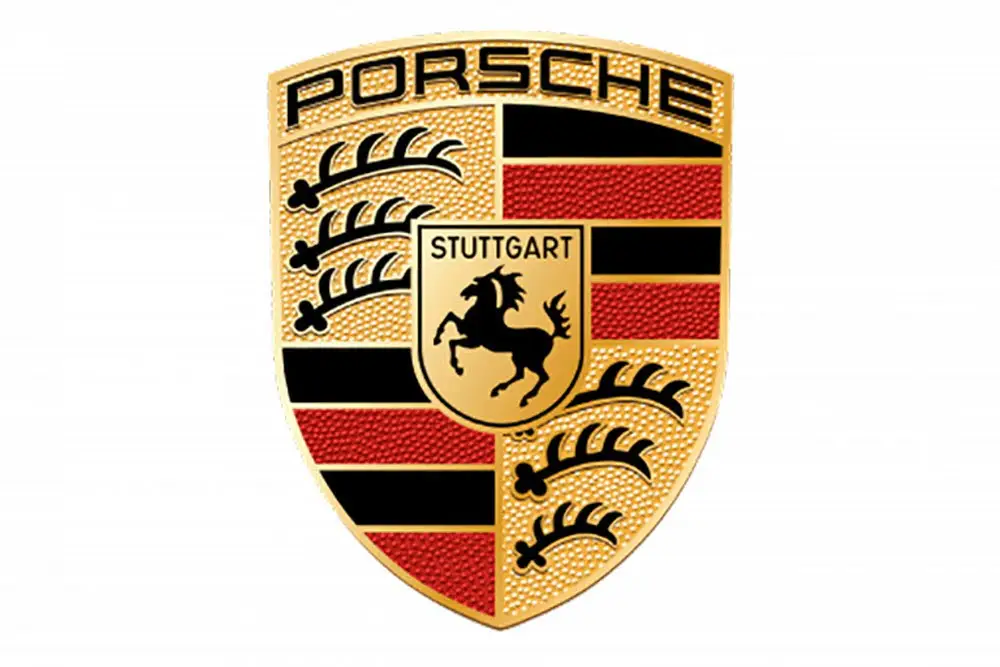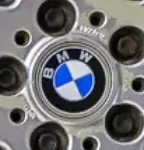En quoi consiste un stage 1 Voiture ?
Un Stage 1 Voiture est une première étape de modification des performances d’un véhicule. Il s’agit principalement d’une reprogrammation du calculateur moteur (ECU) sans ajout de pièces mécaniques.
Cette intervention vise à optimiser les paramètres du moteur pour améliorer la puissance et le couple tout en restant dans les tolérances des composants d’origine.
La reprogrammation du calculateur moteur permet de modifier des paramètres tels que :
– L’avance à l’allumage
– La pression de suralimentation du turbo
– La gestion de l’injection de carburant
Par exemple, pour une Volkswagen Golf GTI, un Stage 1 peut augmenter la puissance de 230 ch à environ 280 ch, et le couple de 350 Nm à 450 Nm.
Cela se traduit par une amélioration notable des performances sans trop compromettre la fiabilité du moteur.
Il est important de noter que le Stage 1 Voiture ne nécessite pas de modifications internes au moteur, ce qui le rend accessible et relativement abordable pour les amateurs de performances.
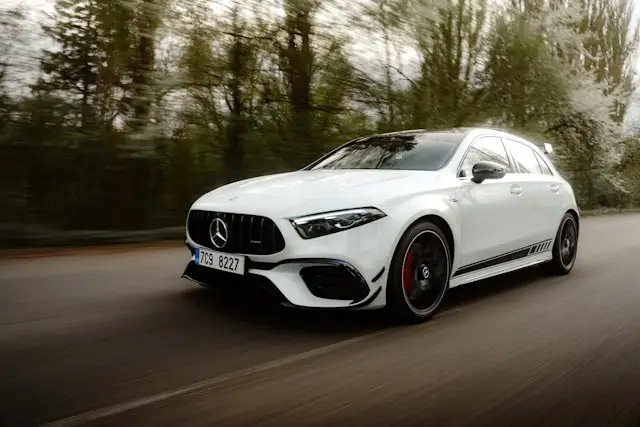
Où faire un Stage 1 Voiture ?
Pour effectuer un Stage 1 Voiture, il est essentiel de choisir un prestataire qualifié et expérimenté.
Consultez les avis en ligne et les forums automobiles pour trouver des recommandations sur les meilleurs centres de reprogrammation.
Vérifiez si le centre offre une garantie sur la reprogrammation effectuée.
Parmi les centres réputés en France, on peut citer ShifTech, BR-Performance, ou Digiservices, qui sont connus pour leur expertise et leurs résultats probants.
Par exemple, ShifTech propose des stages 1 pour une large gamme de véhicules avec des gains de puissance et de couple optimisés.

Comment faire un stage 1 soi même sur sa voiture ?
Réaliser un stage 1 sur votre voiture soi-même peut être une aventure passionnante et gratifiante. Voici un petit tutoriel.
Outils et Logiciels Nécessaires
Pour effectuer un stage 1 soi-même, vous aurez besoin des éléments suivants :
– Un ordinateur portable avec une connexion Internet stable.
– Un câble OBD-II pour connecter votre ordinateur à l’ECU de la voiture.
– Un logiciel de reprogrammation ECU tel que ECU Titanium, WinOLS, ou Alientech KESSv2.
– Des fichiers de cartographie spécifiques à votre véhicule, disponibles sur des forums spécialisés ou via des entreprises comme Tuning Files.
Étapes pour Réaliser un Stage 1 Voiture
1. Identifiez les spécifications de votre véhicule (marque, modèle, année, moteur).
2. Recherchez des forums de tuning pour obtenir des conseils et des fichiers de cartographie fiables.
3. Connectez le câble OBD-II à la prise correspondante dans votre voiture (généralement sous le tableau de bord).
4. Utilisez le logiciel de reprogrammation pour lire les paramètres actuels de l’ECU et sauvegardez le fichier d’origine de votre ECU avant de faire toute modification.
5. Chargez le fichier de cartographie dans le logiciel et apportez les modifications nécessaires pour optimiser les performances du moteur.
Modifications courantes : augmentation de la pression du turbo, ajustement des temps d’injection de carburant et modification des courbes d’allumage.
6. Une fois les modifications apportées, utilisez le logiciel pour écrire les nouvelles données dans l’ECU de votre voiture.
Assurez-vous que l’opération est menée sans interruption pour éviter tout dommage à l’ECU.
7. Démarrez votre voiture et effectuez un test routier pour vérifier les améliorations en termes de puissance et de réactivité.
8. Utilisez des outils de diagnostic pour surveiller les paramètres du moteur et ajuster la cartographie si nécessaire.
Précaution importante : Toujours sauvegarder le fichier d’origine de l’ECU avant de faire des modifications.
Combien coûte un stage 1 voiture ?
Le coût d’un stage 1 voiture peut varier considérablement en fonction de plusieurs facteurs, notamment le type de véhicule, la complexité de la reprogrammation, et l’expertise du professionnel réalisant l’opération.
Pour une voiture standard comme une Volkswagen Golf ou une Renault Mégane, le coût d’un stage 1 se situe généralement entre 400 et 800 euros.
Pour des modèles sportifs comme les Audi S4, BMW M3 ou Mercedes AMG, les prix peuvent varier entre 800 et 1 500 euros.
Les véhicules de prestige tels que les Porsche, Ferrari ou Lamborghini peuvent voir leurs tarifs grimper jusqu’à 2 000 euros ou plus en raison de la complexité de la reprogrammation et de la précision requise.
Un stage 1 voiture inclut généralement les services suivants :
– Diagnostic initial : Vérification des paramètres actuels du moteur pour évaluer les besoins spécifiques.
– Reprogrammation ECU : Modification des paramètres de l’ECU pour optimiser les performances.
– Test et ajustement : Conduite d’essai et ajustements fins pour assurer que le moteur fonctionne de manière optimale.

Combien de chevaux gagner avec un stage 1 ?
Le gain de puissance obtenu grâce à un stage 1 voiture varie en fonction de plusieurs facteurs, notamment le type de moteur, les modifications spécifiques effectuées et les conditions du véhicule.
1. Les Facteurs Influant sur le Gain de Puissance
Les moteurs turbocompressés bénéficient généralement de gains plus importants comparés aux moteurs atmosphériques.
Un moteur bien entretenu répondra mieux aux modifications.
Utiliser des fichiers de cartographie optimisés améliore les résultats.
2. Gains de Puissance Typiques
– Moteurs Essence Turbocompressés : Les gains de puissance pour ces moteurs peuvent aller de 20 à 30% supplémentaires. Par exemple, un moteur 2.0 TFSI de 200 chevaux pourrait atteindre 240 à 260 chevaux après un stage 1.
– Moteurs Diesel Turbocompressés : Ces moteurs peuvent également voir une augmentation de 20 à 30%. Un moteur 2.0 TDI de 140 chevaux pourrait ainsi passer à environ 170 à 180 chevaux.
– Moteurs Atmosphériques : Les gains sont généralement plus modestes, de l’ordre de 5 à 10%. Un moteur 2.0 L atmo’ de 150 chevaux pourrait gagner 7 à 15 chevaux supplémentaires.
3. Exemples Concrets
Un stage 1 sur une Golf GTI (2.0 TSI, 245 chevaux d’origine) peut augmenter la puissance à environ 290 à 310 chevaux.
Une reprogrammation stage 1 sur une BMW 320d (2.0 diesel, 190 chevaux d’origine) peut porter la puissance à environ 220 à 230 chevaux.
Pour une Ford Fiesta ST (1.5 EcoBoost, 200 chevaux d’origine), un stage 1 peut augmenter la puissance à environ 230 à 240 chevaux.
Dans certains cas, un stage 1 peut également conduire à une légère réduction de la consommation.

Quel danger pour sa voiture avec un stage 1 ?
Réaliser un stage 1 voiture présente des risques potentiels qu’il est important de connaître pour prendre une décision éclairée.
Une pression de turbo accrue peut réduire la durée de vie du turbocompresseur.
Les pièces comme l’embrayage et les pignons de la boîte de vitesses peuvent s’user plus rapidement sous des charges plus élevées.
La reprogrammation peut augmenter la chaleur générée par le moteur, sollicitant davantage le système de refroidissement.
Modifier l’ECU peut annuler la garantie du constructeur, car la voiture n’est plus dans sa configuration d’origine.
Certaines assurances peuvent refuser de couvrir un véhicule modifié sans déclaration préalable.
Les primes peuvent augmenter suite à la modification.
Une reprogrammation mal réalisée peut entraîner des dysfonctionnements, des pannes moteur, ou des dommages graves.
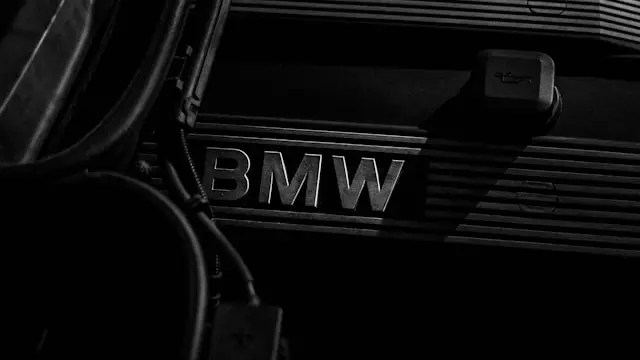
Stage 1 sur une voiture diesel VS essence
Gains de Puissance
Les moteurs diesel turbocompressés, comme le 2.0 TDI de Volkswagen, peuvent voir des gains de 20 à 30% en puissance.
Le couple, crucial pour les diesel, augmente également de manière significative.
Les moteurs essence turbocompressés, tels que le 2.0 TFSI d’Audi, bénéficient d’un gain similaire en puissance.
Les moteurs atmosphériques voient des gains plus modestes, souvent entre 5 et 10%.
Consommation de Carburant
Une reprogrammation bien réalisée peut améliorer légèrement l’efficacité du carburant, surtout à bas régime.
Les moteurs essence peuvent également voir une légère amélioration de la consommation de carburant, bien que cela dépende beaucoup du style de conduite après la modification.
Sensations de Conduite
Les moteurs diesel reprogrammés offrent une augmentation notable du couple à bas régime, ce qui améliore les reprises et la conduite en ville.
Les moteurs essence offrent une conduite plus dynamique et une meilleure réponse à haut régime, améliorant l’accélération et la performance sportive.

Comparaison : stage 1 Voiture vs stage 2 vs stage 3
Les stages de reprogrammation ECU sont classés en trois niveaux principaux : stage 1, stage 2, et stage 3. Chaque niveau offre des augmentations progressives de performance et des modifications plus approfondies.
Stage 1
Reprogrammation ECU uniquement, sans modifications matérielles.
+ de 20 à 30% d’augmentation de puissance.
Coût : Entre 400 et 1 500 euros.
Risques : Usure prématurée des composants, annulation de la garantie constructeur.
Stage 2
Reprogrammation ECU avec modifications matérielles comme l’ajout d’un échappement sport, d’un intercooler amélioré et parfois des injecteurs plus performants.
Jusqu’à 40% d’augmentation de puissance.
Coût : Entre 1 000 et 3 000 euros.
Risques : Augmentation des besoins en entretien, risques accrus de surchauffe et de défaillance des composants.
Stage 3
Reprogrammation ECU avec des modifications matérielles avancées incluant un turbo ou un compresseur surdimensionné, pistons forgés, et d’autres composants de performance.
+ de 50% d’augmentation de puissance.
Coût : Entre 3 000 et 10 000 euros ou plus.
Risques : Transformation majeure du véhicule nécessitant une expertise technique approfondie, augmentation significative des coûts d’entretien et de réparation, problèmes potentiels de fiabilité.
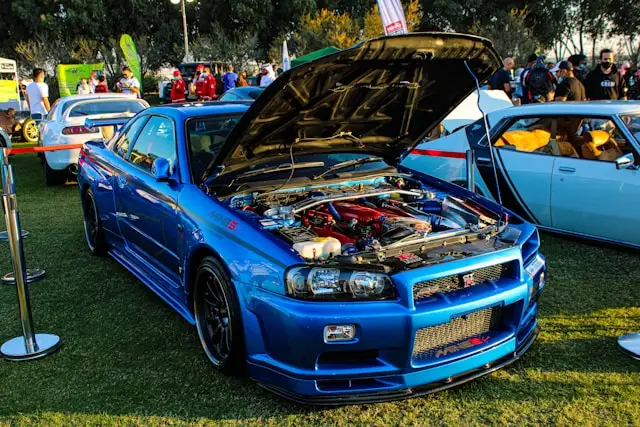
Précautions à prendre sur sa voiture avant un stage 1
Avant de réaliser un stage 1 voiture, il est essentiel de prendre certaines précautions pour garantir que la modification se déroule sans problème et que le véhicule puisse supporter l’augmentation de performance.
– Vérifiez et, si nécessaire, remplacez les filtres à air, à carburant et à huile.
– Effectuez une révision complète, incluant le contrôle du moteur, de la transmission, du système de refroidissement et des freins.
– Effectuez un diagnostic complet avec des outils de diagnostic OBD-II pour détecter toute anomalie ou problème potentiel.
– Considérez l’installation de composants de performance tels que des bougies d’allumage hautes performances, ou un intercooler amélioré.

Un stage 1 sur sa voiture, c'est légal ou pas ?
Voici un aperçu de la situation en France.
Selon le Code de la Route, toute modification affectant les caractéristiques techniques du véhicule doit être déclarée et approuvée.
La modification doit être homologuée par un organisme certifié (DREAL ou UTAC) pour être légale sur la voie publique.
Circuler avec un véhicule modifié non homologué peut entraîner des amendes et la mise en fourrière du véhicule.
En cas d’accident, l’assurance peut refuser de couvrir les dommages si les modifications n’ont pas été déclarées et homologuées.

FAQ sur un stage 1 de voiture
Qu'est-ce qu'un stage 1 voiture ?
C’est une reprogrammation du calculateur (ECU) pour optimiser les paramètres du moteur, augmentant ainsi la puissance et les performances du véhicule sans modifications matérielles.
Quels sont les gains de puissance attendus avec un stage 1 voiture ?
En moyenne, un stage 1 peut augmenter la puissance d’un moteur turbocompressé de 20 à 30%. Par exemple, une voiture avec un moteur de 200 chevaux peut atteindre environ 240 à 260 chevaux.
Combien coûte un stage 1 voiture ?
Le coût d’un stage 1 varie généralement entre 400 et 1 500 euros, en fonction du type de véhicule et du prestataire.
Est-ce que le stage 1 affecte la garantie du constructeur ?
Oui, la reprogrammation de l’ECU peut annuler la garantie du constructeur car elle modifie les paramètres d’origine du véhicule.
Un stage 1 est-il légal en France ?
La légalité d’un stage 1 dépend de son homologation. Après modification, le véhicule doit passer un contrôle technique et obtenir un certificat de conformité pour être légal sur la voie publique.
Quelle est la différence entre un stage 1, stage 2 et stage 3 ?
Stage 1 : Reprogrammation ECU uniquement.
Stage 2 : Reprogrammation ECU avec modifications matérielles légères comme un système d’échappement sport.
Stage 3 : Reprogrammation ECU avec modifications matérielles avancées incluant un turbo surdimensionné et autres composants de haute performance.
Puis-je réaliser un stage 1 moi-même ?
Oui, avec les bons outils et logiciels, vous pouvez réaliser un stage 1 vous-même. Cependant, cela nécessite une bonne connaissance technique et des précautions pour éviter d’endommager le moteur.






